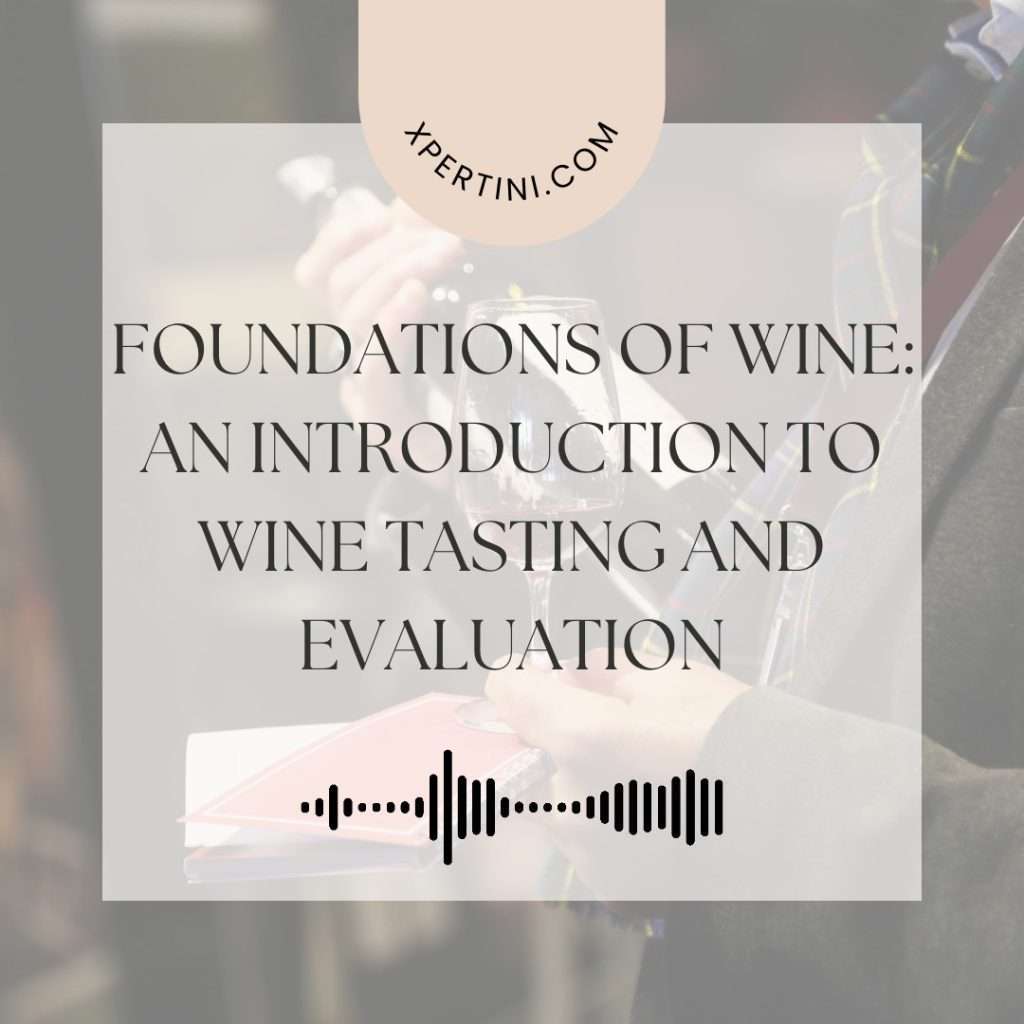Foundations of Wine: An Introduction to Wine Tasting and Evaluation
Course Summary
In this comprehensive course on wine industry fundamentals, students delve into the diverse world of wine, gaining valuable insights into its production, appreciation, and ethical consumption. Through a series of engaging lessons, learners explore wine tasting etiquette, professional protocols, and the cultural significance of wine. They develop a sophisticated understanding of wine vocabulary, honing their language skills to effectively communicate with others in the industry.
The course emphasizes the importance of responsible drinking practices, guiding students in understanding the concept of moderation and recognizing signs of alcohol-related harm. By promoting responsible consumption and encouraging community support, learners are equipped with the knowledge and tools to make informed choices and foster a culture of well-being within the wine community.
Furthermore, students are introduced to various career opportunities within the wine industry, from viticulture and winemaking to marketing and sales. They receive guidance on further education and professional development opportunities, empowering them to pursue rewarding careers in this field.
Throughout the course, learners engage in descriptive exercises to deepen their understanding and refine their skills. They also benefit from access to a wealth of resources, including books, magazines, and online materials, to expand their knowledge and stay abreast of industry trends.
By the end of the course, students emerge with a comprehensive understanding of the wine industry, equipped with the skills and knowledge needed to begin on successful careers or simply enhance their appreciation of wine as a cultural and social phenomenon. With a firm grasp of responsible drinking practices and a passion for excellence, they are poised to make meaningful contributions to the vibrant world of wine.
Course Overview
This course serves as an essential introduction to the world of wine tasting and evaluation. Participants will delve into the foundational principles of sensory analysis, explore the diverse varieties of wine, and develop a comprehensive understanding of the factors that contribute to wine quality and taste.
Course Objectives
- Understand the basic principles of wine tasting and evaluation.
- Identify and describe common grape varieties and wine regions.
- Develop sensory analysis skills to evaluate wine appearance, aroma, taste, and mouthfeel.
- Gain insight into the production process of wine, including grape growing, harvesting, fermentation, and aging.
- Explore the influence of terroir, climate, and winemaking techniques on wine characteristics.
- Learn to effectively communicate about wine, including using appropriate terminology and descriptors.
- Appreciate the cultural and historical significance of wine.
- Explore the ethical and responsible consumption of wine.
- Apply knowledge gained to make informed wine choices.
- Recognize potential career paths within the wine industry.
Course Outcomes
- Able to differentiate between various grape varieties and wine styles.
- Demonstrate proficiency in describing wine appearance, aroma, taste, and mouthfeel.
- Understand the impact of environmental factors on wine production and quality.
- Analyze the historical evolution of winemaking techniques and traditions.
- Apply sensory analysis techniques to evaluate wine quality.
- Communicate effectively about wine using industry terminology and descriptors.
- Evaluate the ethical considerations surrounding wine production and consumption.
- Develop strategies for responsible wine selection and consumption.
- Explore career opportunities within the wine industry.
- Create a personalized plan for further wine education and exploration.
Course Audience
- Individuals aspiring to pursue a career in the wine industry
- Wine enthusiasts seeking to deepen their knowledge and appreciation of wine

